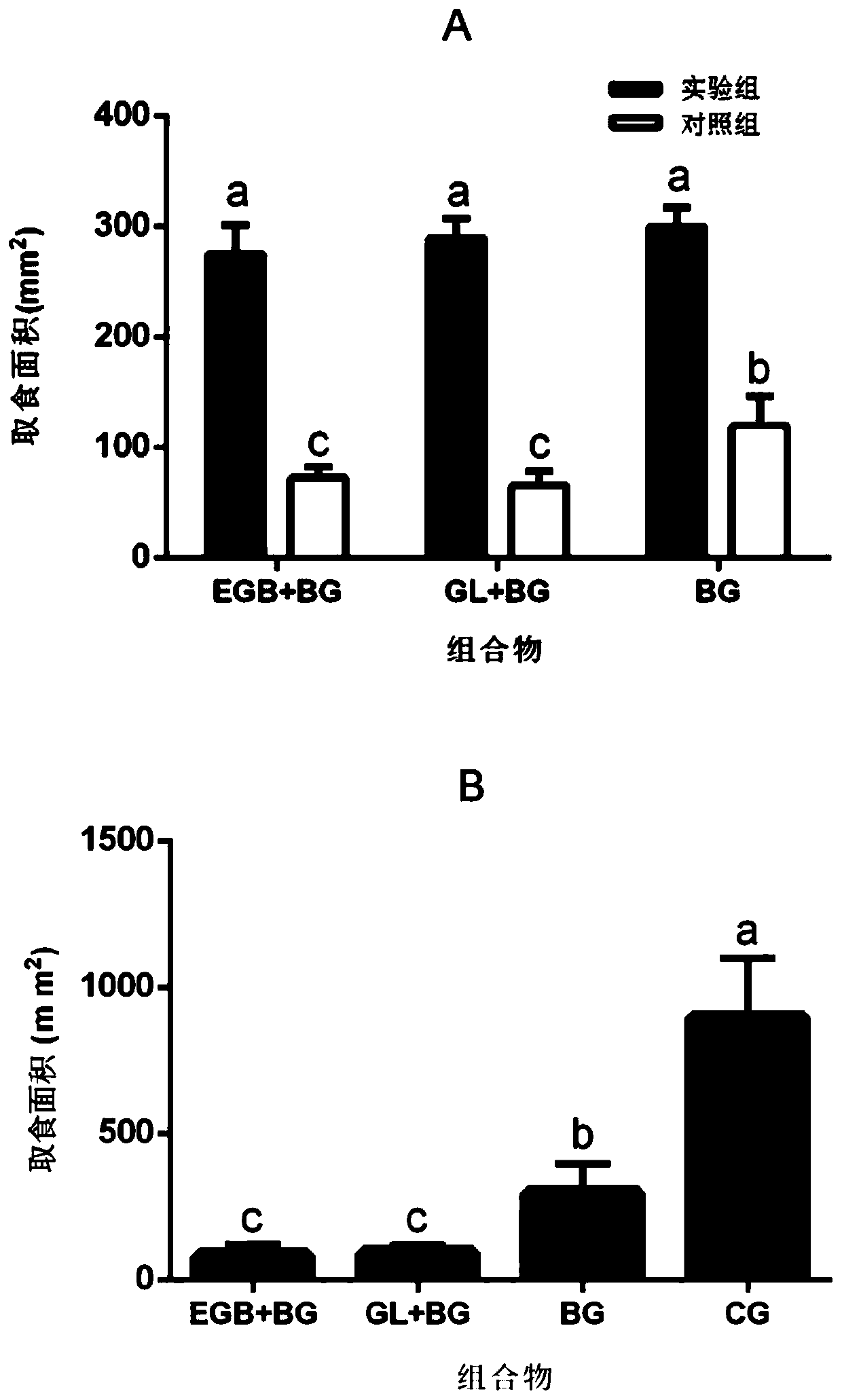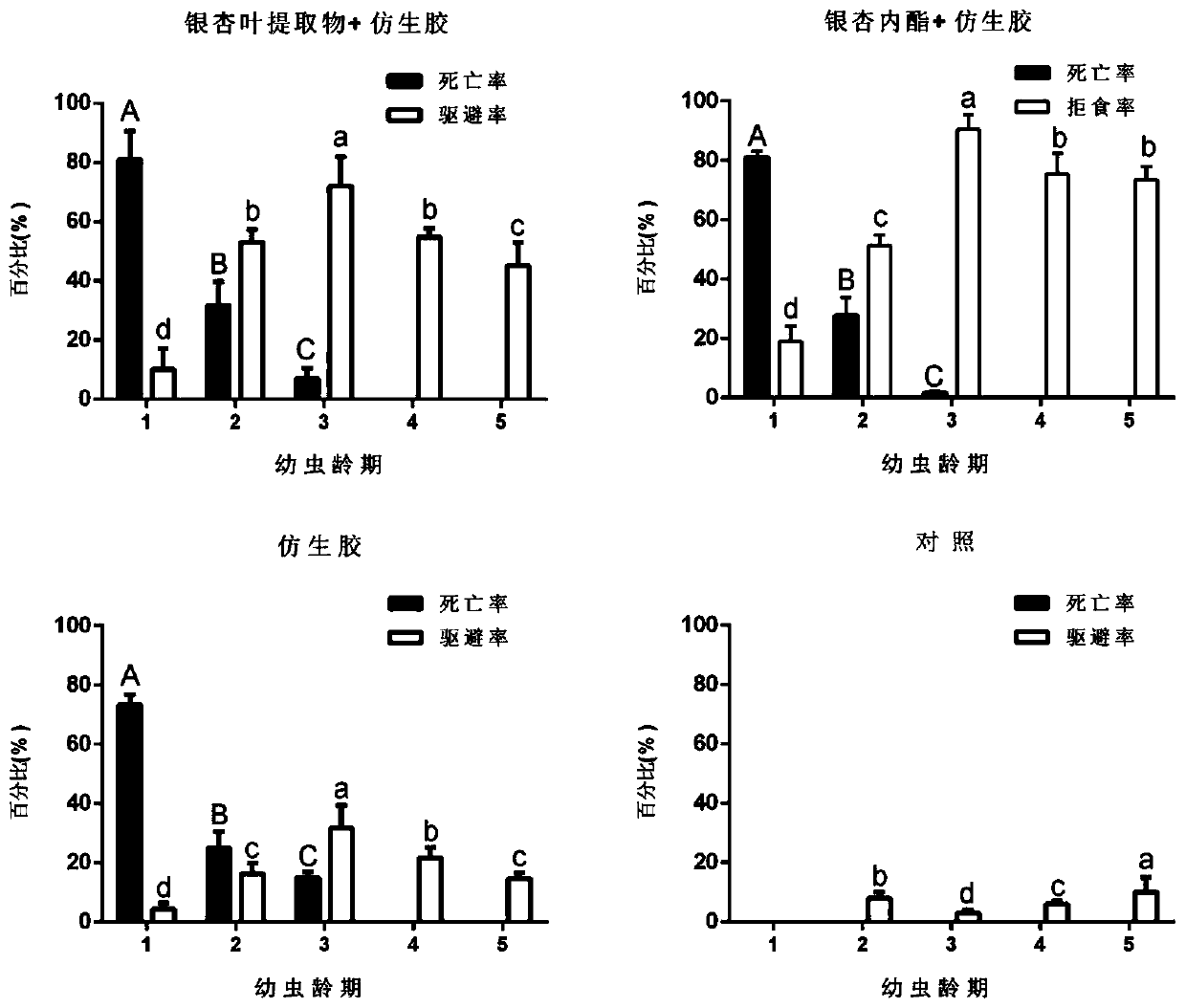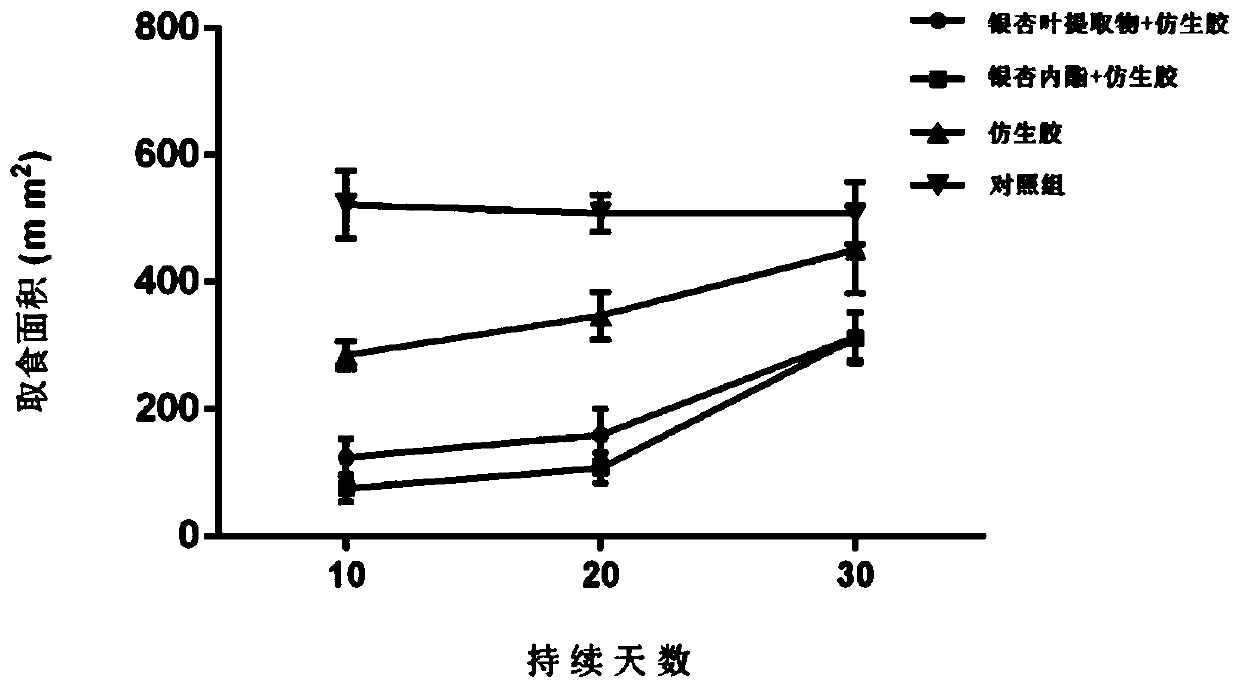A synergistic antifeedant for preventing and treating white moth and its application method
A technology of white moth and antifeedant, applied in pest control, botany equipment and methods, applications, etc., can solve the problems affecting the selection of insect hosts, etc., and achieve obvious antifeedant effect, obvious antifeedant effect and long-lasting effect
- Summary
- Abstract
- Description
- Claims
- Application Information
AI Technical Summary
Problems solved by technology
Method used
Image
Examples
Embodiment 1
[0028] Embodiment 1 indoor food refusal test
[0029] The antifeedant effect of different secondary substances of Ginkgo biloba compounded with biomimetic glue on white moth larvae was verified by leaf disc method.
[0030] Get 1g ginkgo biloba extract (EGB) and 0.05g ginkgolide (GL) (by bilobalide: ginkgolide A: ginkgolide B: ginkgolide C mass ratio is 5:2:2:1 mix Ginkgolide is a mixture, composed of the above 4 monomers) respectively dissolved in 5ml ethanol solution, then mixed with 45ml biomimetic glue (BG), and another 5ml absolute ethanol and 45ml biomimetic glue mixed solution, set as 3 groups of experimental groups, and 5ml of absolute ethanol and 45ml of distilled water as the control group (CG), a total of 4 groups of medicines (3 groups of experimental groups, 1 group of control group). ,
[0031] Healthy ash leaves that had not been sprayed with pesticides were collected in Beijing Forestry University and soaked in distilled water for 30 minutes to remove surface...
Embodiment 2
[0038] Embodiment 2 outdoor control experiment
[0039]Take 2g of ginkgo leaf extract and 0.1g of ginkgolide and dissolve them in 10ml of absolute ethanol solution and mix them with 90ml of biomimetic glue solution, and separately take 10ml of absolute ethanol and 90ml of biomimetic glue solution as the experimental group. In addition, 10 absolute ethanol and 90 ml distilled water were taken as a control group, and 4 kinds of medicaments (3 experimental groups, 1 control group) were all put into a plastic watering can with a volume of about 150 ml and marked for later use. In June 2016, a piece of 500×200m was selected in Jingjin New City, Baodi District, Tianjin 2 In the sample plot, the dry willow in the sample plot was seriously damaged by the American white moth. Select dry willow branches seriously damaged by American white moth, and record the number of harmful larvae on the branches before spraying. Since the larvae have the habit of transferring harm, the camera was ...
Embodiment 3
[0043] Embodiment 3 antifeedant effect timeliness test
[0044] Select healthy ash trees in Beijing Forestry University, randomly select 30 different leaves on the same side branch, and spray biomimetic glue, biomimetic glue containing 2g of ginkgo leaf extract and 0.1g of ginkgolide on every 10 leaves. For bionic glue, after 10 days, randomly select 30 white wax leaves on the same side branch and spray the above three kinds of chemicals respectively, and after 20 days, randomly select another 30 white wax leaves on the same side branch and spray the above three kinds of chemicals respectively. After 30 days, the above leaves were collected uniformly, and the ash leaves sprayed with the three pesticides for 10 days, 20 days and 30 days were obtained for indoor experiments, and the normal ash leaves sprayed with distilled water were collected as a control. White moth larvae were tested for food resistance for 24 hours using the leaf disc method described in the indoor food resi...
PUM
 Login to View More
Login to View More Abstract
Description
Claims
Application Information
 Login to View More
Login to View More - R&D
- Intellectual Property
- Life Sciences
- Materials
- Tech Scout
- Unparalleled Data Quality
- Higher Quality Content
- 60% Fewer Hallucinations
Browse by: Latest US Patents, China's latest patents, Technical Efficacy Thesaurus, Application Domain, Technology Topic, Popular Technical Reports.
© 2025 PatSnap. All rights reserved.Legal|Privacy policy|Modern Slavery Act Transparency Statement|Sitemap|About US| Contact US: help@patsnap.com



